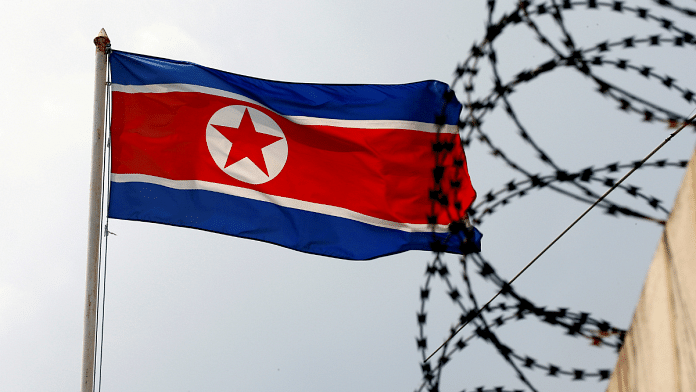Seoul: North Korea launched a long-range ballistic missile into the sea off Japan’s west coast on Saturday after warning of a strong response to upcoming military drills by South Korea and the United States.
Japanese authorities said the missile plunged into waters inside Japan’s exclusive economic zone more than an hour after it was launched, suggesting the weapon was one of Pyongyang’s largest missiles.
Japanese Prime Minister Fumio Kisihda said the missile appeared to have been ICBM-class, referring to an intercontinental ballistic missile. He told a briefing Japan strongly condemned the launch, calling it a threat to the international community.
Defence Minister Yasukazu Hamada said the missile appeared to have a range of more than 14,000 km (8,700 miles) – sufficient to reach the U.S. mainland.
Tokyo said there were no immediate reports of damage to ships or aircraft.
In South Korea, which denounced the launch as a “clear breach of U.N. Security Council resolutions”, the joint chiefs of staff said the missile had flown about 900 km (560 miles) before splashing into the sea.
North Korea’s first missile firing since Jan. 1 came after Pyongyang threatened on Friday an “unprecedentedly persistent, strong” response as South Korea and the United States gear up for annual military exercises as part of efforts to fend off the North’s growing nuclear and missile threats.
Following Saturday’s launch, South Korea’s National Security Council convened a meeting and agreed to increase cooperation on security with Washington and Japan.
The White House strongly condemned the launch and said it would take all necessary measures to protect the U.S. homeland and regional allies.
The launch “needlessly raises tensions and risks destabilizing the security situation in the region,” Adrienne Watson, spokesperson for the White House National Security Council, said in a statement.
The U.S. Indo-Pacific Command said the launch did not pose an immediate threat to the U.S. or its allies.
Solid-fule missile progress?
Nuclear-armed North Korea fired an unprecedented number of missiles last year, including ICBMs that are capable of striking anywhere in the United States, while resuming preparations for its first nuclear test since 2017.
Saturday’s missile was launched from the Sunan area near Pyongyang, South Korea’s military said. Sunan is the site of the Pyongyang International Airport, where North Korea has conducted most of its recent ICBM tests.
North Korea’s ballistic missile and nuclear weapons programmes are banned under U.N. Security Council resolutions, but Pyongyang says its weapons development is necessary to counter “hostile policies” by Washington and its allies.
Allied nuclear drills, called the Deterrence Strategy Committee Tabletop Exercise, are scheduled for Wednesday at the Pentagon and will involve senior defence policymakers from both sides, Seoul’s Defence Ministry said.
The two countries are also planning a range of expanded field exercises, including live fire drills, in the coming weeks and months.
Some 28,500 U.S. troops are stationed in South Korea as a legacy of the 1950-1953 Korean War, which ended in an armistice rather than a full peace treaty, leaving the parties technically at war.
Pyongyang may have created a military unit tasked with operating new ICBMs, in line with its recent restructuring of the military, state media video footage from a Feb. 9 parade suggested.
That parade displayed more ICBMs than ever before, including a possible new solid-fuel weapon, which could help the North deploy its missiles faster in the event of a war.
“North Korean missile firings are often tests of technologies under development, and it will be notable if Pyongyang claims progress with a long-range solid-fuel missile,” said Leif-Eric Easley, a professor of international studies at Ewha University in Seoul.
(Reporting by Hyunsu Yim and Josh SmithAdditional reporting by Steve HollandEditing by William Mallard, Jason Neely, Helen Popper and Diane Craft)
Disclaimer: This report is auto generated from the Reuters news service. ThePrint holds no responsibilty for its content.



